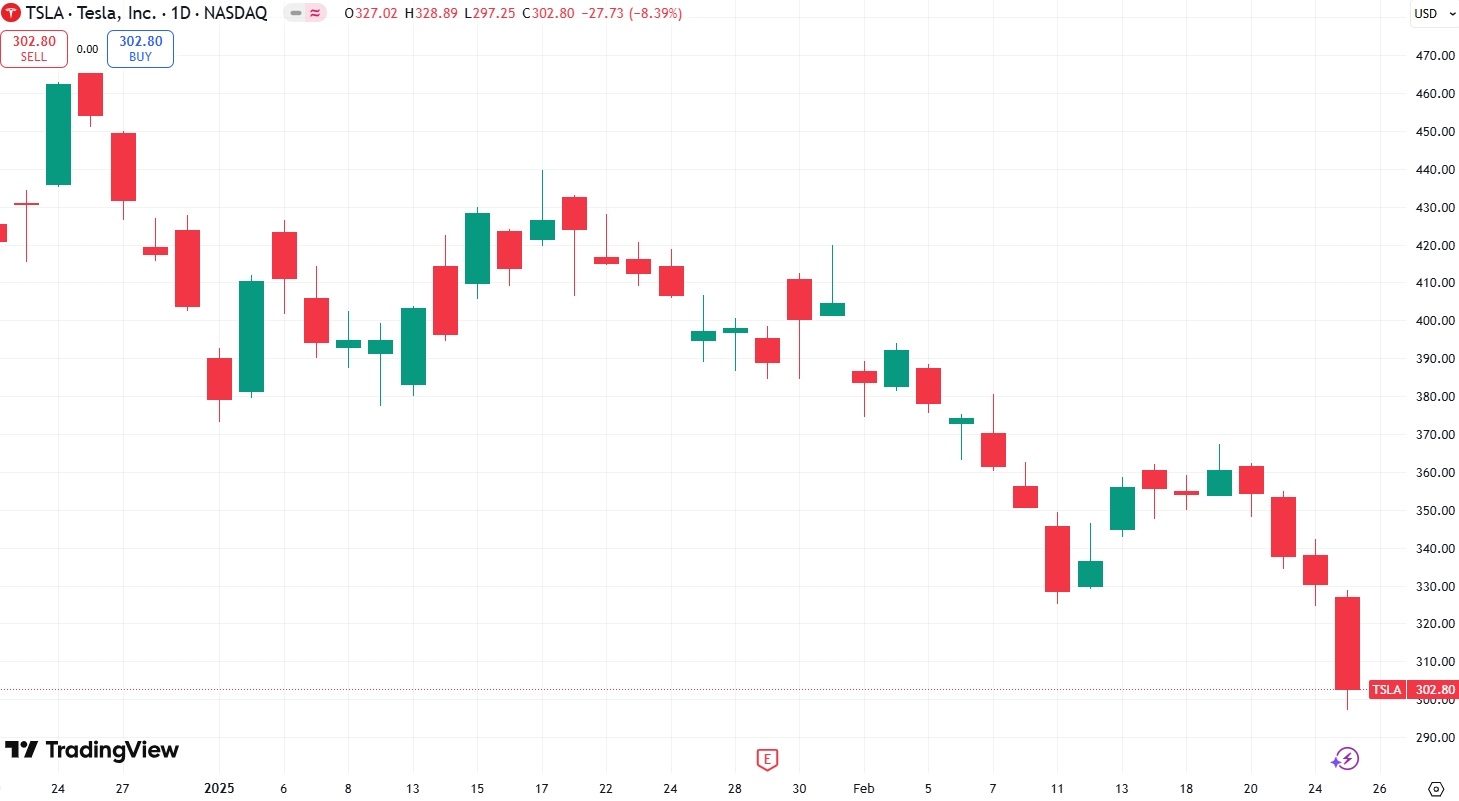Tesla Market Cap Falls Below $1 Trillion as FSD's Entry into China Can't Offset the Europe Halving Sales

TradingKey — After finally introducing its Full Self-Driving (FSD) technology into China, Tesla (TSLA.US) is facing another challenge as its car sales in Europe have been halved.
On Tuesday, February 25th, Tesla's stock price plummeted 10% at one point and closed down 8.39% at $302.80. The sharp drop caused Tesla's market capitalization to fall below $1 trillion for the first time in three months. Its current market cap stands at $973.961 billion, the lowest since November 2024.

[2025 Tesla Stock Price Chart, Source: TradingView]
Tesla had a "mixed bag" of news on Tuesday. On one hand, the much-anticipated FSD function was officially launched in the Chinese market. On the other hand, Tesla's car sales in Europe plummeted in January.
On the 25th, Tesla announced that the Urban Road Autopilot assistance function had been rolled out in batches to Chinese customers for an update.
However, the version released does not fully align with the FSD self-driving feature as described by Musk. Instead, it is an optimized version based on the Enhanced Autopilot (EAP), and its name has been changed from Full Self-Driving to Intelligent Driving Assistance, also known as the "gutted FSD."
Some reviews indicated that Tesla's FSD demonstrated accurate recognition of traffic lights and relatively smooth lane-changing operations. However, in complex traffic environments, such as congested roads during rush hours, the FSD showed slow responses and other issues.
The latest data shows that Tesla sold 9,945 vehicles in Europe in January, a 45% year-on-year decrease. Tesla's share of new car registrations in Europe dropped from 1.8% to 1%.
However, overall sales of electric vehicles in Europe have not declined. Instead, they increased by 37.3% year-on-year, and the proportion of electric vehicles in the European automotive market rose to 15%.
At the same time, the widespread layoffs led by Musk's involvement with DOGE have triggered a backlash in the market against Tesla's stock.
Saxo Bank analysts noted that Tesla's biggest challenge in 2025 may not be technology, but perception. Musk’s political baggage is now weighing on sales, brand loyalty, and investor confidence.







